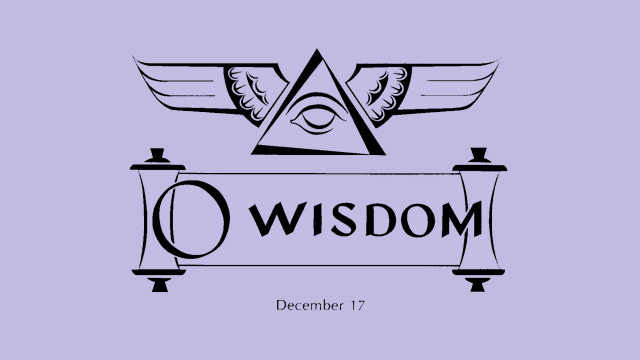I vaguely remember my mother telling us, during the Season of Advent, while growing up, about the “O” antiphons. I never really understood what these were. Even as an adult, she would occasionally send me various reflections on the “O” antiphons. I must say, with regret that while I thought it to be an important part of our Advent Tradition, I didn’t really see them as part of my tradition.
Until I began praying the Office of the Church.
As a Deacon, I have made a promise to pray the Liturgy of the Hours: Morning prayer (laudes) and Evening prayer (vespers). This prayer of the Church allows us to pray with (and through) the Psalms. They have been part of the prayers of the Church since very early in our history. As we pray the psalms, each one is introduced by an antiphon (not unlike the refrain we pray at Mass during the Responsorial Psalm). Added to the Psalms, which are different every day, there are two canticles from the Gospel of Luke that are prayed every day: The Canticle of Zechariah (Luke 1:68-79) in the morning for laudes; and the Canticle of Mary (the Magnificat: Luke 1: 46-55) in the evening for vespers.
On the last seven days before the Vigil of Christmas, December 17-23, our Church sings antiphons that are slightly different than the rest of the year. For evening prayer, before the Magnificat, each of these antiphons begins with the word, “Oh” (or in Latin “O”), thus the short-handed name, the “O” antiphons.
Each of these seven prayers-songs consists of
a) an invocation addressed to Christ, using one of his prophetic titles (O Wisdom; O Key of David etc.);
b) a development of that title reflecting passages in the Old and New Testaments;
c) an ardent request expressed by the word “Come”;
d) the reason why we want Christ to come.
Not only are these antiphons prayed during vespers, but they have also been placed in the daily Liturgy as the verse of the Gospel Acclamation. With the new translation of the Roman Missal, these are sometimes summarized or even repeated, but, in their essence, they are the same. If you go to daily Mass between December 17 – 23, you’ll hear them.
I recently discovered that, not only are these found in the Liturgy of the Hours and in the daily Mass, but they are actually, also the verses to a song that all of us know very well, O Come, O Come Emmanuel.
All of us can make use of these anthems in our family and personal prayers for they sum up everything that we want our Lord to be toward us and our world, to do for us and our world in His Christmas coming.
For the next seven days, I’d like to share with you these antiphons that you will pray with them and they will help you continue to prepare for the Advent of our Lord. May they become part of your Advent tradition as they are becoming part of mine.
For December 17, the antiphon is based on Wisdom 8:1; Isaiah 11:2-3; 28:29, Proverbs 8:1-36 and John 1:1-5.
O Sapientia, quæ ex ore Altissimi prodiisti, attingens a fine usque ad finem, fortiter suaviterque disponens omnia: veni ad docendum nos viam prudentiæ.
O Wisdom, you come forth from the mouth of the Most High. You fill the universe and hold all things together in a strong yet gentle manner: come to teach us the way of truth. (Isaiah 11:2-3; Isaiah 28:29)
From Evening prayer
O Wisdom,
O holy Word of God,
you govern all creation with your strong yet tender care:
Come
and show your people the way to salvation.
From O Come, O Come Emmannuel:
Verse 2:
O Come, Thou Wisdom, from on high,
and order all things far and nigh;
to us the path of knowledge show,
and teach us in her ways to go.
Wisdom
In the ancient civilizations of the Near East, “wisdom” was first understood as the science and art of managing men. It meant the principles involved in “getting along” successfully oneself and in making the whole state function smoothly. In Israel, under the inspiration of the Holy Spirit, the search for human wisdom became more and more oriented toward the supreme Wisdom of God by which He creates and governs all things, His hidden design for mankind and its mysterious ordering of everything to achieve His plan.
Christ our Lord is this eternal Wisdom incarnate. He clarified and carried out God’s plan to re-establish everything in Himself as head. May He come more fully to each of is and to the whole world this Christmas, to show us how we may take our part in carrying out that plan for our own happiness and for the happiness of all people.
–
(Reflection taken from Bible and Liturgy, a Sunday parish bulletin published by the Liturgical Press, Collegeville, Minn. Edited by Rev. William Heidt, OSB. Published with the approval of Bishop Peter W. Bartholome of St. Cloud. Printed in 1959 by the North Central Publishing Company, St. Paul, Minnesota (c) 1959 by the Order of St. Benedict, Inc.) 